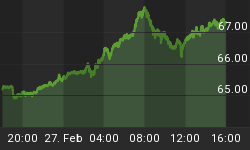Back in April, Reuters reported that fabled Singapore oil trading firm, Hin Leong Trading (Pte) Ltd, had been caught with its hand in the cookie jar: One of the biggest names in the world of physical oil trading had systematically cooked its books in a bid to hide US$800 million in futures losses over the years. But now the full extent of the financial impropriety has come to light after it has emerged that the firm had for years forged its records to hide massive holes in its traders' books amounting to billions of dollars. The Wall Street Journal has reported that the said firm used "routine and pervasive" forgery to inflate its assets by more than $3 billion.
Hin Leong Trading (Pte) Ltd is a closely held firm owned by billionaire founder Lim Oon Kuin.
Singapore Trading Scandals
A two-month investigation by court-appointed independent administrators has revealed convoluted accounting that allowed the distressed firm to overstate its assets for years. The investigators have found that Hin Leong's true assets amounted to just $257 million, or a mere 7% of the $3.5 billion it has in liabilities, mostly to loans from banks, including HSBC Holdings PLC.
Hin Leong posted a net profit of $78 million against total liabilities and equity of $4.56 billion for the period ended October 31. However, investigations revealed that the firm's total liabilities amounted to $4.05 billion, while assets were just $714 million, leaving a hole of $3.34 billion.
According to an affidavit by the founder's son, Lim Chee Meng, Hin Leong also secretly sold some of the millions of barrels of refined products that it had pledged as collateral to secure the loans. This resulted in a significant shortfall between the inventories pledged to its lenders and what it actually held, potentially meaning huge losses for the banks. Interestingly, Deloitte & Touche LLP, the firm that audited Hin Leong's accounts for the period ending October 31, 2019, failed to flag these anomalies.
The revelation of the extent of corporate malfeasance by the giant firm has rocked Singapore's bustling the trading community.
But it's just one of a series of scandals that have lately emerged in close succession from the city-state, thus threatening its ambitions to become a regional and global commodity trading hub.
Related: Copper Glut Continues To Grow
Similar blow-ups by Agritrade International and ZenRock Commodities Trading have led to questions being asked about the efficacy of the country's regulatory framework and its oversight of trading houses. HSBC has accused ZenRock of engaging in dishonest practices that left the firm owing more than $600m to creditors.
Critics now say the country's monitoring and enforcement of many of the country's numerous privately owned trading firms in the energy sector are too weak. Singaporean authorities are seen as being reluctant to introduce rigorous oversight due to their overriding desire to be viewed as a business-friendly destination.
Singapore's location, which straddles vital shipping lanes that connect China with global markets, has helped transform it into a leading commodity trading hub that competes directly with traditional giants, including London, Houston, and Geneva. The majority of the world's oil trading houses, including Vitol Trafigura, Glencore, and Mercuria have offices in Singapore where they rub shoulders with trading firms of oil giants, including Shell and BP in markets such as bunkering, or marine fuel.
To be fair, the commodity blow-ups are hardly unique to Singapore, with the recent debt crisis at Dubai-based Phoenix Commodities, another high-profile case where oil traders have tried to obfuscate the extent of their losses.
Indeed, these are a reflection of just how choppy the oil markets have become in recent times.
In April, we reported how Chinese oil investors lost $1B after oil prices went negative. Bloomberg has also reported that hordes of oil traders lost a collective $109 million after Interactive Brokers failed to recognize negative oil prices in a case eerily reminiscent of the Y2K bug of two decades ago.
Profiting from Chaos
It's not all doom and gloom, of course.
Savvy trading firms have actually been minting billions thanks to the sky-high volatility in the oil markets.
Goldman Sachs commodities trading unit generated more than $1B in revenues through May as its traders' bets on the oil price crash paid off. Most of the killing was made by just two oil traders, Anthony Dewell and Qin Xiao, who correctly predicted the collapse and positioned their desks accordingly.
Last year was a record year for most oil traders thanks to heightened volatility; this year appears to be more of a mixed one as oil markets entered unchartered territory.
By Alex Kimani for Oilprice.com
More Top Reads From Safehaven.com:
















